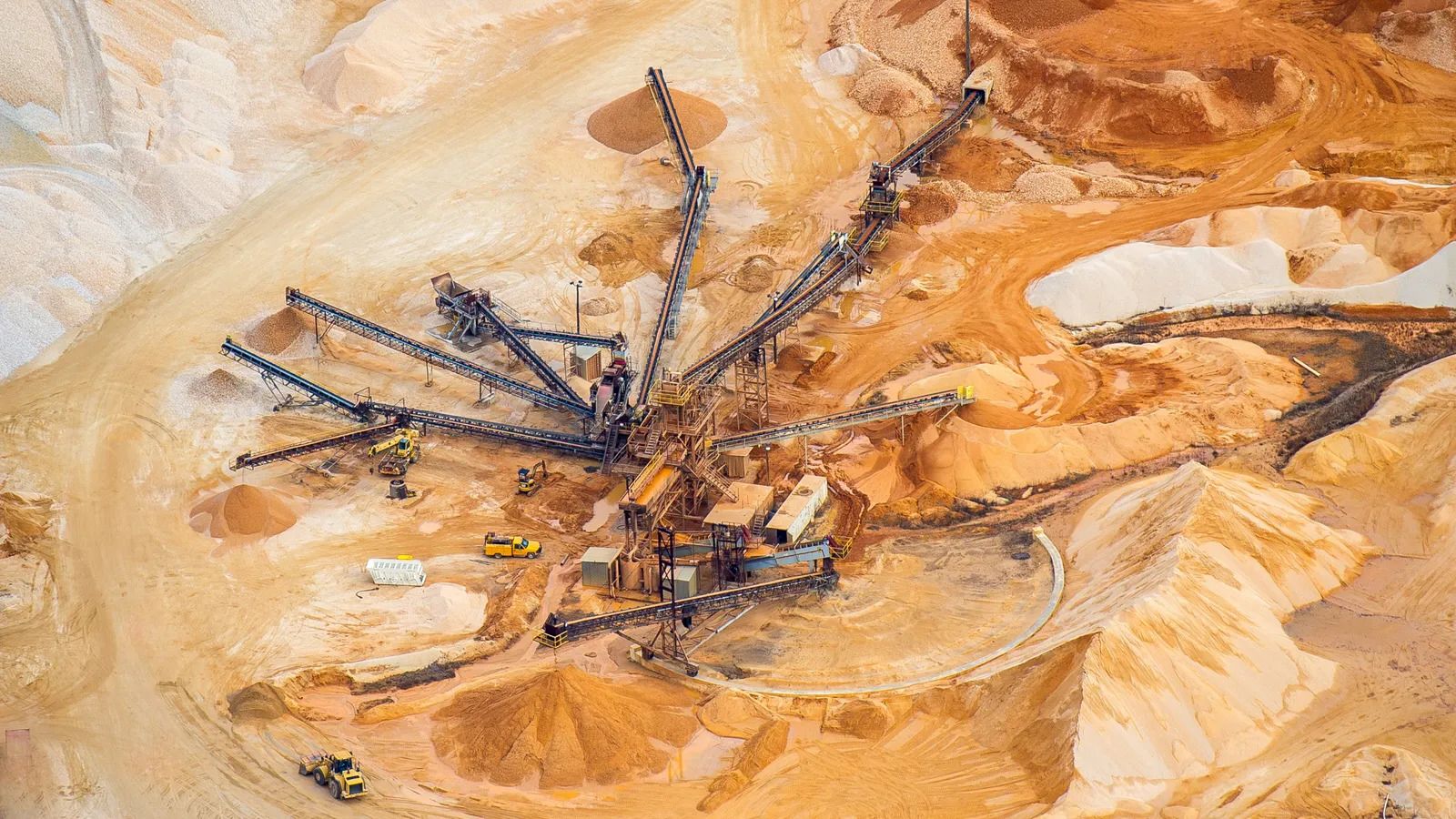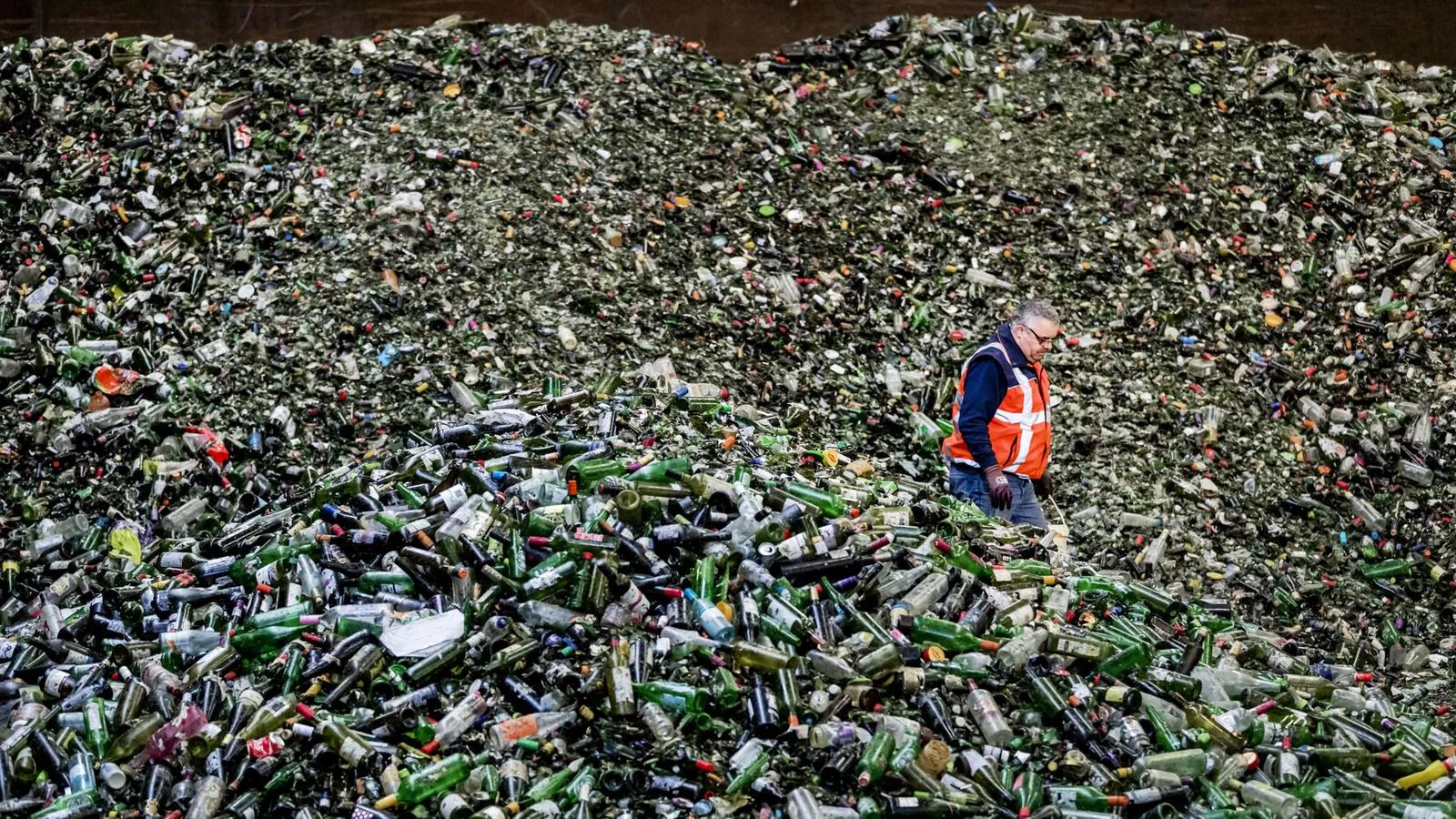
Glass or plastic: which is better for the environment?
Dating back to between 325 and 350 AD, the Speyer wine bottle is thought to be the world's oldest bottle of wine. Now held in the Wine Museum in the German city of Speyer, where it was rediscovered in 1867, an analysis of its contents revealed that it holds an ethanol-based liquid. But the glass bottle remains unopened and the vintage unknown. Any prospective wine tasters should be wary – preserved historic beverages can be pungent, to say the least.
The widespread use of glass as a storage vessel throughout history highlights the material's resilience and functionality. Glass is a useful material for everything from preserving food to carrying the signals that power the internet. So essential is glass to human development that the United Nations named 2022 the International Year of Glass to celebrate its contribution to cultural and scientific development.
Glass has sometimes been referred to as a material which can infinitely be recycled without it impacting its quality, purity or durability. Recycled glass can be crushed into glass cullets, which can be melted down and used to produce more glass. Glass used for packaging has a high recycling rate compared to other packaging materials. In Europe, the average glass recycling rate is 76%, compared to 41% for plastic packaging and 31% for wooden packaging.
When glass is left in the natural environment, it is less likely to cause pollution than plastic. Unlike plastics, which break down into microplastics that can leach into our soils and water, glass is non-toxic. "Glass is mainly made of silica, which is a natural substance," says Franziska Trautmann, the co-founder of Glass Half Full, a New Orleans-based company that recycles glass into sand that can be used for coastal restoration and disaster relief. Silica, also known as silica dioxide, makes up 59% of the Earth's crust. Since it is a natural compound, there is no concern about leaching or environmental degradation.
 Glass production requires huge amounts of sand - a rapidly shrinking natural resource
Glass production requires huge amounts of sand - a rapidly shrinking natural resource
Because of this, glass is often touted as a more sustainable alternative to plastic.
However, glass bottles have a higher environmental footprint than plastic and other bottled container materials including drinks cartons and aluminum cans. The mining of silica sand can cause significant environmental damage, ranging from land deterioration to the loss of biodiversity. Violations of basic workers' rights have also been found in Shankargarh, India, which is the biggest supplier of silica sand to the country's glass industry. Some studies have also shown that extended exposure to silica dust can pose a public health risk, as it can lead to acute silicosis, an irreversible, long-term lung disease caused by the inhalation of silica dust over an extended period of time. Silicosis may first appear as a persistent cough or shortness of breath, and may result in respiratory failure.
Extracting sand for glass production may also have contributed to the current global sand shortage. Sand is the second most-used resource in the world after water – people use some 50 billion tonnes of "aggregate", the industry term for sand and gravel, each year.
Its uses range from land regeneration to microchips. According to the UN, sand is now used faster than it can be replenished.
Glass requires higher temperatures than plastic and aluminum to melt and form, says Alice Brock, a PhD researcher at University of Southampton in the UK. Raw materials for making virgin glass also release greenhouse gases during the melting process, adding to its environmental footprint. According to the International Energy Agency, the container and flat-glass industries emit over 60 megatonnes of CO2 per year. It may seem surprising, but Brock's study found that plastic bottles are less environmentally damaging than glass bottles. Although plastic cannot be endlessly recycled, the manufacturing process is less energy-intensive, as there is a lower melting point for plastics compared with glass.
The raw materials for glass are melted together in a furnace at 1500C (2732F). The molten glass is then removed from the furnace, shaped and moulded. Glass production facilities often add a portion of recycled glass cullets into the raw material mix. Generally, a 10% increase in glass cullet into the container glass melting mixture can decrease energy consumption by 2-3%. This is because it requires a lower melting point to melt glass cullet compared to the virgin materials used to produce glass. In turn, this slightly reduces the CO2 emissions produced during manufacturing.
A key problem with glass recycling is that it does not eradicate the remelting process, which is the most energy intensive part of glass production. It accounts for 75% of the energy consumption during production. Even though glass containers can be reused an average of 12-20 times, glass is often treated as single-use. Single-use glass disposed of at landfills can take up to one million years to decompose. Glass recycling rates vary significantly across the globe. The EU and the UK have an average recycling rate of 74% and 76%, while the US figure was 31.3% in 2018.
 Glass can be recycled endlessly without loss in quality and durability
Glass can be recycled endlessly without loss in quality and durability
One reason for the US' poorer figures is that recycled material is usually collected in a "single stream", meaning all materials are mixed together. Single-stream recycling often complicates the sorting process, since glass must be separated from other recyclables and sorted by colour, before it can be remelted. Often, it is too time-consuming, and therefore expensive, to separate mixed coloured glass at a recycling facility. Instead of being converted to new bottles, the broken pieces of mixed glass are turned into glass fibre products that can be used for insulation. Glass cullet is the highest quality when it is separated from other recyclables from the beginning – this is known as multi-stream recycling.
The colour of glass affects how pure the stream needs to be. While green glass can use 95% of recycled glass; white or colourless glass, also known as "flint glass", has higher quality specifications and only permits up to 60% recycled glass because any contamination affects the quality.
Recycled glass must be melted down twice, once into cullets and then again into a new product – which is why recycled glass might only be fractionally less energy-intensive than virgin glass.
There is no doubt that glass still plays an important role in many industries. Its durability and non-toxic properties make it ideal for foods and materials which require preserving. However, the assumption that glass is sustainable merely because it is infinitely recyclable is misconstrued. Considering its entire lifecycle, glass production may be equally as detrimental to the environment as plastic.
The next time you want to discard a glass bottle, perhaps consider reusing it first. Glass is a resilient, long-lasting material that is not made to be thrown away after only being used once.








